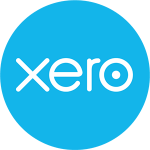Currently, at just 17 per cent, Singapore has one of the lowest corporate tax rates in the whole world. Because of this low rate, along with several other tax incentives, Singapore is a preferred place for many foreign investors. There are many organisations that are expanding their operations in Singapore, and any way to save on their finances is always a boon to a company. So, that’s why we are going to discuss five ways for you to save on your corporate tax in Singapore.
5 Ways to Save Your Corporate Tax in Singapore
1. SUTE or Start-Up Tax Exemption Scheme
The Singapore Government has set up the Start-Up Tax Exemption Scheme or SUTE to enhance the growth of entrepreneurship and local enterprises. Through the scheme, new start-ups can get a tax exemption for the first three consecutive years of assessment (YAs) after the incorporation date. To qualify for the SUTE scheme, companies need to meet the following requirements.
- The business owner needs to be a tax-paying citizen of Singapore for the Year of Assessment.
- The company must be incorporated in Singapore.
- The company should not have more than twenty shareholders throughout the YA.
- The company can run businesses in any sector besides investment holding and property development.
- All the shareholders must be individuals, or at least one among the twenty shareholders must be an individual holding a minimum of ten per cent of the company’s issued ordinary shares.
In Singapore’s 2018 budget, exemptions under the scheme were revised for companies whose first three YA falls after or in YA2020:
- A 75% exemption on the first SGD 100,000 of the regular taxable income of the start-up.
- A 50% exemption on the next SGD 100,000 of the regular taxable income of the start-up.
2. Pioneer Certificates Incentive (PC) and Development and Expansion Incentive (DEI)
The objective of both the PC and DEI schemes is to facilitate companies in expanding their operations or businesses in Singapore. For example, organisations that need to set up global or regional headquarters in Singapore can depend on PC or DEI as they provide a concessionary corporate tax rate of ten per cent and five per cent, respectively, as per eligible activities.
But business owners need to remember that PC and DEI are both limited only to five years, and any further extension can be offered only on the basis of the expansion plans proposed by their companies.
These companies will have to maintain comprehensive records of the non-qualifying as well as qualifying activities, for which they will need to hire accounting firms in Singapore to provide professional accounting services. This is essential for the purpose of keeping records of some non-qualifying activities that are significant for both PC and DEI.
An organisation can be eligible for both PC and DEI if it contributes to Singapore’s economy or has modern capabilities adhering to global standards.
3. Regional Headquarters Award (RHA) and International Headquarters Award (IHA)
The RHA is administered by the Economic Development Board (EDB) of Singapore. The scheme helps to encourage global companies to be based in Singapore to run their regional operations. This assists in advancing the status of Singapore as a regional hub of business.
Companies that have been given the RHA enjoy a low corporate tax of fifteen per cent on the incremental income from certain qualifying activities for a period of three to five years. This is subject to their maintaining and satisfying all the given conditions throughout the period of the award.
To qualify for the RHA, Singapore businesses have to fulfil the following criteria:
- Employment of a minimum of 75% skilled staff with a high-school certificate and around ten professionals with a diploma or above by the end of the third year.
- A paid-up capital of SGD 200,000 by the end of the first year and SGD 500,000 by the end of the third year at the time of the incentive period.
- The average annual salary of SGD 100,000 for the first five executive positions by the end of the third year.
- The headquarters must give three types of services to certain company-owned entities in three other countries apart from Singapore by the third year’s end.
- An additional SGD 2,000,000 in total annual business expenditure in Singapore by the end of the third year.
The EDB also administers the International Headquarters Award (IHA). Enterprises that set up their headquarters in Singapore can benefit from and apply for this award. This will qualify them for Singapore corporate tax rates of five to ten per cent. To be eligible for this, companies need to do the following:
- The headquarters need to be the organisation’s hub for its principal operations and senior management, with control procedures and well-defined management in place.
- The company must have good recognition in its own industry and strength in terms of market share, human resources, capital, and assets.
- The company will have to move the bulk of its headquarter operations to its Singapore office.
4. DTDi or Double Tax Deduction Scheme Internalisation
Singapore companies that desire to expand their operations or businesses in overseas markets can enjoy a 200 per cent tax deduction under DTDi. Enterprise Singapore manages this with the objective of allowing business owners to expand their organisations in some international territories.
A breakdown of DTDi conveys that companies do not require any approval from Enterprise Singapore for the first SGD 150,000 when they have business development trips overseas, international trade shows, or research studies.
5. Research and Development Expenditure
Research and Development Expenditure is the most popular tax scheme in Singapore and helps companies to obtain tax breaks for their R&D activities.
To qualify, it is important to acquire new skills or knowledge, apply new technical knowledge in some production facilities, conduct tests and surveys, and collect data. Some companies are also able to claim a hundred per cent tax deduction on certain in-house research projects.
Conclusion
We have discussed the top five schemes that will enable you to save on corporate taxes in Singapore. So, if your company or business qualifies for any of the above schemes, make sure to take advantage of the same while filing your corporate tax.
Engage Timcole to help you manage your taxation and never miss out on any tax-saving schemes. We can not only help you with your taxation but also manage your accounting and bookkeeping to ensure all your financial data is updated and accurate, which allows you to make informed decisions at any time.
Corporate Tax Made Easier with Xero
 Xero is an online cloud accounting software used worldwide. It is known to be one of the best inventory management software for SMEs and a popular choice for corporate accountants.
Xero is an online cloud accounting software used worldwide. It is known to be one of the best inventory management software for SMEs and a popular choice for corporate accountants.
Xero is an approved IT solution for the Singapore PSG grant. With the PSG grant, get up to 70% subsidy for Xero set-up and/or migration. Check your eligibility and pricing here.
Start applying now! Apply your PSG funding with our Step-by-Step Guide.








